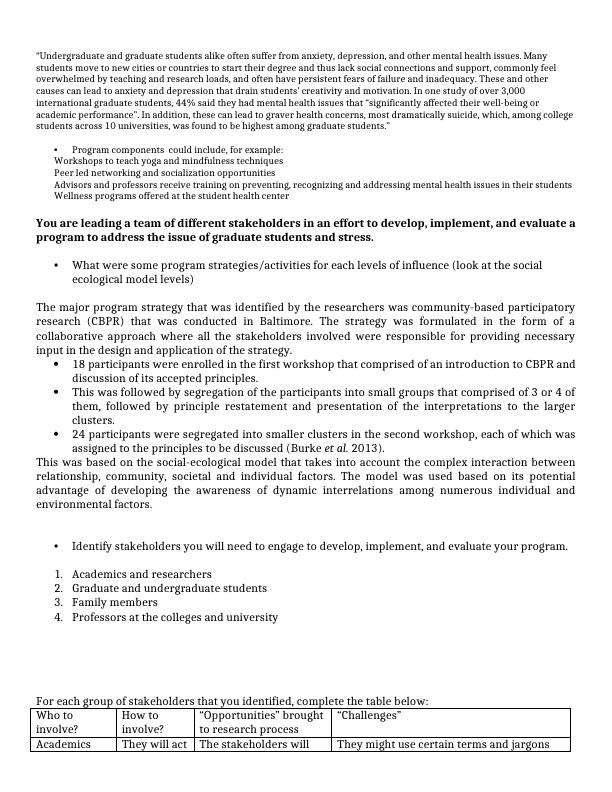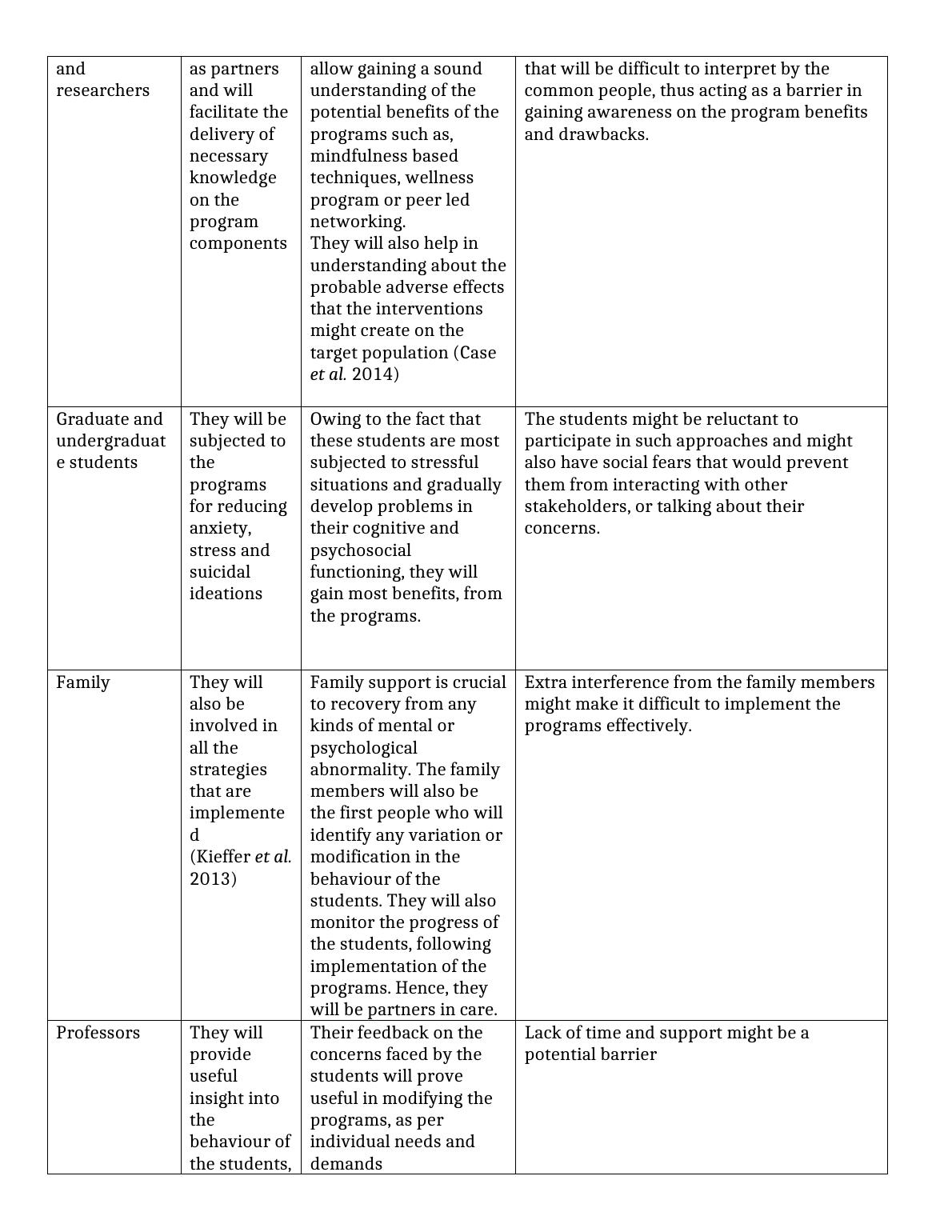Program Strategies to Address Graduate Student Stress | Desklib
Developing, implementing, and evaluating a program to address the issue of graduate students' stress.
4 Pages1047 Words406 Views
Added on 2023-05-30
About This Document
The article discusses program strategies to address graduate student stress using community-based participatory research (CBPR) and social-ecological model. Desklib offers workshops, wellness programs, and peer-led networking opportunities to reduce anxiety and depression. The stakeholders involved in the program include academics, researchers, graduate and undergraduate students, family members, and professors. The article also highlights the opportunities and challenges of involving each group of stakeholders in the research process.
Program Strategies to Address Graduate Student Stress | Desklib
Developing, implementing, and evaluating a program to address the issue of graduate students' stress.
Added on 2023-05-30
ShareRelated Documents
End of preview
Want to access all the pages? Upload your documents or become a member.
University Impacts: Health, Environment, and Society
|10
|2553
|51
Study Of Biofeedback Program To Reduce Anxiety Level
|19
|5685
|454
Academic and Professional Skills: Impacts of Establishing a University
|8
|2367
|496
Exploring Leadership Pedagogy Among Louisiana Baccalaureate Nursing Programs
|167
|50158
|340
Social Media's Impact on College Students' Mental Health
|4
|996
|438
Ethical Issues in Research with Homeless Youths: Josephine Ensign & Seth Ammerman
|8
|797
|417


